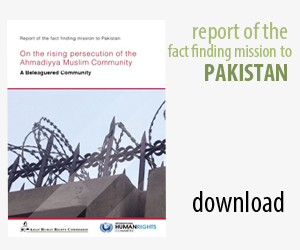Torture in Pakistan
Legal framework regarding torture:
On the Convention against torture:
Pakistan has not ratified the Convention against Torture and Other Cruel, Inhuman or Degrading Treatment or Punishment(CAT) but has signed it on April 17. Pakistan has also not signed the optional protocol. Convention is not made the part of the domestic law.
On the existing domestic law:
Pakistan does not have any specific law relating to torture, though Article 14 (2) of the Constitution expressly prohibits the use of torture for extracting evidence. Many jurists and academics however maintain the opinion, that the provisions in Chapter XVI of the Penal Code (particularly Sections 339, 340 and 349) cover the aspect of torture. But, torture, within the meaning attached to the ‘act of torture’ as prescribed in the Convention against Torture is not a specific crime in Pakistan.
The domestic jurisprudence concerning the use of torture is underdeveloped in Pakistan. The appreciation to exercise the right, as envisaged under Article 14 (2) of the Constitution, has thus far been minimal. To make matters further worse, in a claim against torture, the victims have the burden of proof, and there are no independent investigating agencies that are empowered to inquire on a complaint against torture.
On compensation:
According to the existing legal framework in Pakistan, a claim for compensation for an act of torture could be settled under the Shari’ah law, an opportunity often subject to absolute misuse in the country. Under the existing circumstances in the country, this procedure often benefits the perpetrator. Often the terms of the compensation are decided by the perpetrator, given the fact that in Pakistan, the law-enforcement officers enjoy a higher degree of authority in the society. By far, the courts in the country have been avoiding dealing with the question of torture. This undermines the possibility of using the civilian court proceedings to obtain compensation, as often the compensation proceedings also require a police report to substantiate a claim against torture.
On witness protection:
There is no specific law concerning witness protection in Pakistan. Due to this and because of the overall failure of the country’s justice system, it is a practice in the country for the witnesses to be threatened or even murdered. Murders have happened even within the court premises.
The magnitude of the problem:
Torture in custody is a serious problem affecting the rule of law in Pakistan. It is used as the most common means to obtain confession statements. As yet, there has been no serious effort by the government to make torture a crime in the country. It provides impunity to the perpetrators who are mostly either policemen or members of the armed forces. Furthermore, there is no means for the protection of witnesses. This discourages victims from making complaints. While the international jurisprudence on the issue has evolved into very high standards, the situation in Pakistan resembles the stone ages.
In spite of the prohibition of torture in the constitution, the Pakistan Army is running detention and torture cells in almost every city in the country. The Asian Human Rights Commission in a report has identified 52 such detention centres which are run by the military, where people who were arrested and disappeared are kept incommunicado and tortured for several months to extract the confession statements
Pakistan has signed the Convention against Torture and other cruel, Inhuman or degrading treatment of punishment (CAT) on April 17, 2008. But the signing to Convention against Torture has not provided any relief to the ordinary citizens in the country. No serious work has been started on the CAT by the government of Pakistan to make it part of the domestic law. During last one year, more than 1300 cases of torture were reported from the country. This is in addition to several hundred cases that were not reported.
As of now there are no independent investigation procedures in Pakistan to investigate cases of torture. In addition, there is an alarming level of insensitivity among the legal professionals including the judiciary regarding torture in Pakistan.
It is in the day-to-day work of the lower judiciary that this underdevelopment is mostly visible. One example is the practice of the lower court judges allowing remand custody of the detainees with ease while it is clear that anyone detained will be subjected to torture in Pakistan. The courts even fails to make use of the little space available in the Criminal Procedure Codeof Pakistan, where a judge could demand a reason from the investigating agency for demanding the custody of an accused than transferring the accused into judicial custody.






